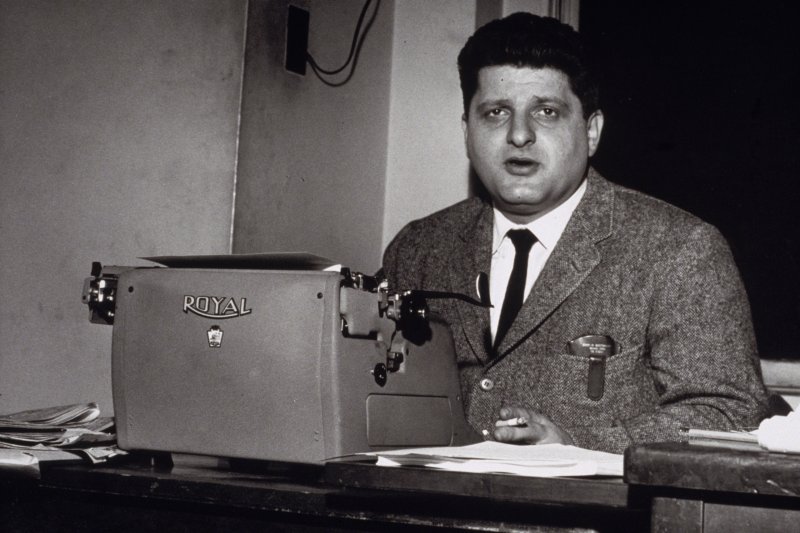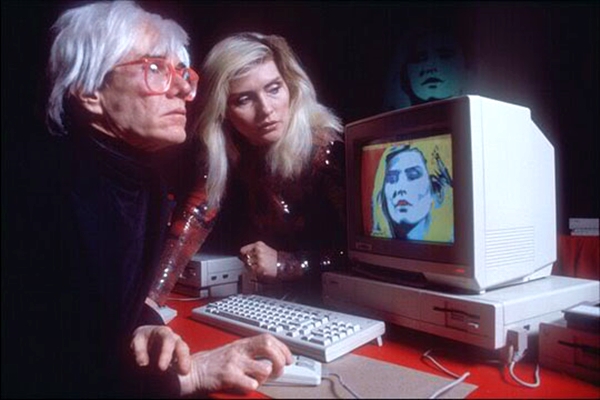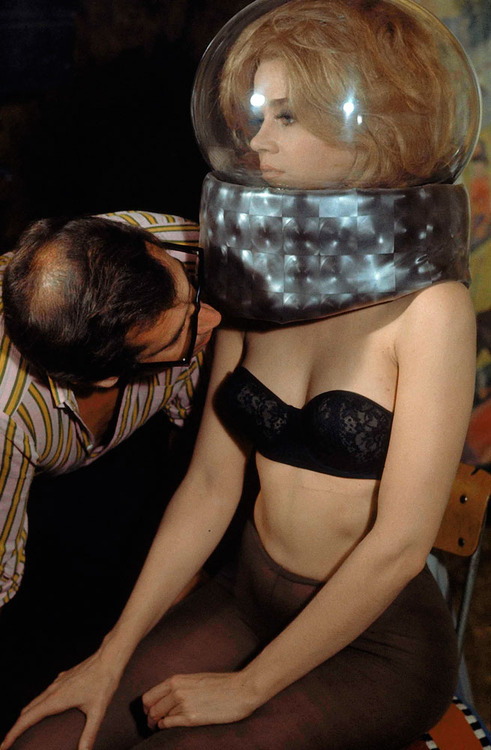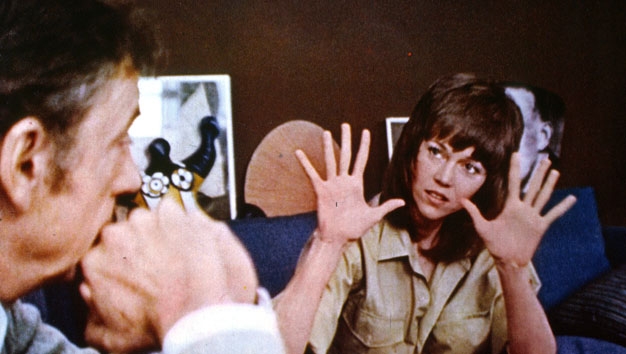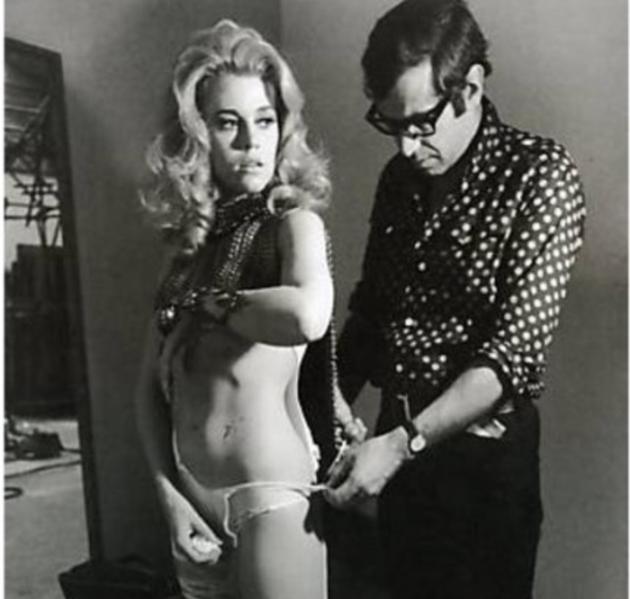Well, you can’t get a much more top-shelf Oscars moment than this passage from the 1977 ceremony, as Jane Fonda introduces Norman Mailer who in turn presents the Best Original Screenplay award to Paddy Chayefsky for Network. Mailer sets up the announcing of the nominees with the famous anecdote about Voltaire visiting a gay bordello. Despite what Aquarius says, it was more way more difficult for Chayefsky to write a great novel than a great screenplay.
You are currently browsing articles tagged Jane Fonda.
Tags: Jane Fonda, Norman Mailer, Paddy Chayefsky
Valerie Solanas was apparently never told that you don’t shoot the messenger. I was completely unaware until watching this video that she shot Andy Warhol the day before Sirhan Sirhan assassinated RFK. In the clip, Warhol and Candy Darling, who, it is written, came from out on the Island, preen for friends and media on a docked boat chartered by Jane Fonda. The line about Warhol’s Superstars “almost living” is striking. Isn’t that what we all dedicate a good portion of our lives to now, with our icons and our selfies and our reality stars? It’s great that everything is freer, but isn’t it surprising what we’ve done with the freedom, the endless channels? It’s life, yes, and it’s almost life.
Tags: Andy Warhol, Brigid Berlin, Brigid Polk, Candy Darling, Jane Fonda
When Jane Fonda was interviewed by David Frost more than 40 years ago, she explained the goal of the actor–and of anyone trying to understand consciousness: “If you asked me what’s the one thing in the whole world I would like more than anything else, it’s for even fifty seconds to be able to–pow–be in someone’s head and just see the world through his eyes.”
To that goal, I think we’re still wandering in the Dark Ages, though not everyone agrees. The opening of “The Mental Block,” Michael Hanlon’s Aeon essay about solving the “hard problem”:
“Over there is a bird, in silhouette, standing on a chimney top on the house opposite. It is evening; the sun set about an hour ago and now the sky is an angry, pink-grey, the blatting rain of an hour ago threatening to return. The bird, a crow, is proud (I anthropomorphise). He looks cocksure. If it’s not a he then I’m a Dutchman. He scans this way and that. From his vantage point he must be able to see Land’s End, the nearby ramparts of Cape Cornwall, perhaps the Scillies in the fading light.
What is going on? What is it like to be that bird? Why look this way and that? Why be proud? How can a few ounces of protein, fat, bone and feathers be so sure of itself, as opposed to just being, which is what most matter does?
Old questions, but good ones. Rocks are not proud, stars are not nervous. Look further than my bird and you see a universe of rocks and gas, ice and vacuum. A multiverse, perhaps, of bewildering possibility. From the spatially average vantage point in our little cosmos you would barely, with human eyes alone, be able to see anything at all; perhaps only the grey smudge of a distant galaxy in a void of black ink. Most of what is is hardly there, let alone proud, strutting, cock-of-the-chimney-top on an unseasonably cold Cornish evening.
We live in an odd place and an odd time, amid things that know that they exist and that can reflect upon that, even in the dimmest, most birdlike way. And this needs more explaining than we are at present willing to give it. The question of how the brain produces the feeling of subjective experience, the so-called ‘hard problem.’ is a conundrum so intractable that one scientist I know refuses even to discuss it at the dinner table. Another, the British psychologist Stuart Sutherland, declared in 1989 that ‘nothing worth reading has been written on it’. For long periods, it is as if science gives up on the subject in disgust. But the hard problem is back in the news, and a growing number of scientists believe that they have consciousness, if not licked, then at least in their sights.”
Tags: David Frost, Jane Fonda, Michael Hanlon
In 1979, Merv Griffin interviews the big-name cast of The China Syndrome, a drama about a cover-up of security hazards at a nuclear power plant. The talk is largely a Hollywood ass-kissing session. Within a couple of weeks of the film’s release, a real-life version of the horrifying scenario played out as Pennsylvania’s Three Mile Island plant melted down. Now that’s a tie-in.
Tags: Jack Lemmon, James Bridges, Jane Fonda, Merv Griffin
The third and final Jane Fonda post this week: A 1972 cine-essay about a photo of the actress visiting Vietnam, as analyzed by Jean-Luc Godard and Jean-Pierre Gorin, who had co-directed her in Tout va bien. This post-script is more successful than the film that it sprang from.
See also:
Speaking of Jane Fonda, she called for an overthrow of the American capitalist system in 1970. But Jane, a well-regulated free market is the best way to spread wealth and information!
Tags: Jane Fonda
Jane Fonda and Roger Vadim visit Merv Griffin in 1967, before she was Barbarella or Hanoi Jane or lots of other stuff.
Tags: Jane Fonda, Merv Griffin, Roger Vadim

